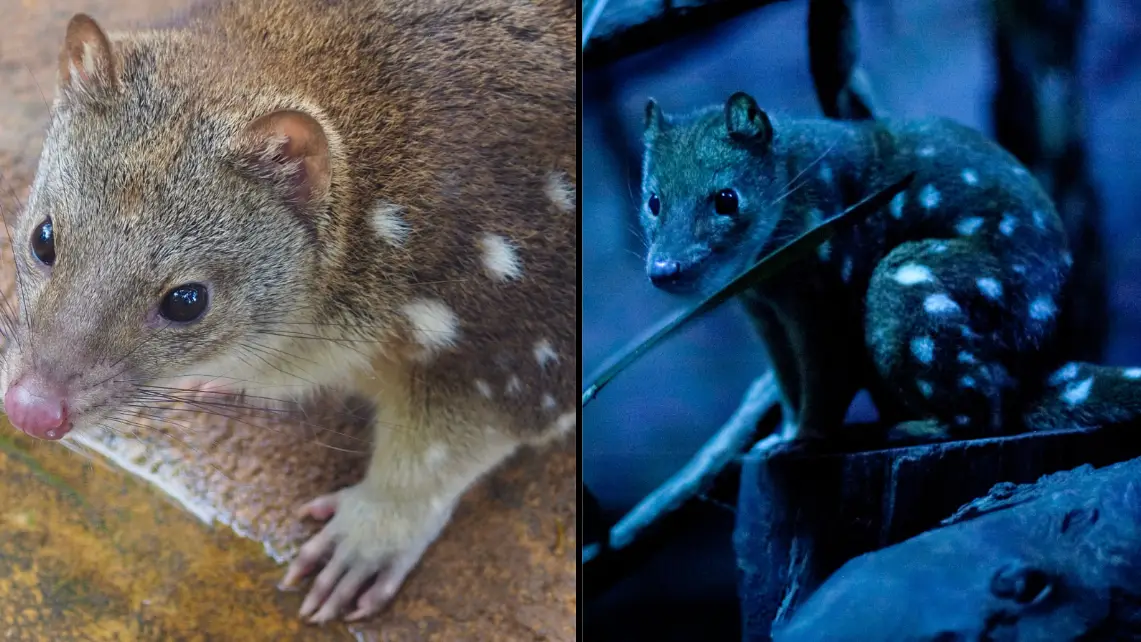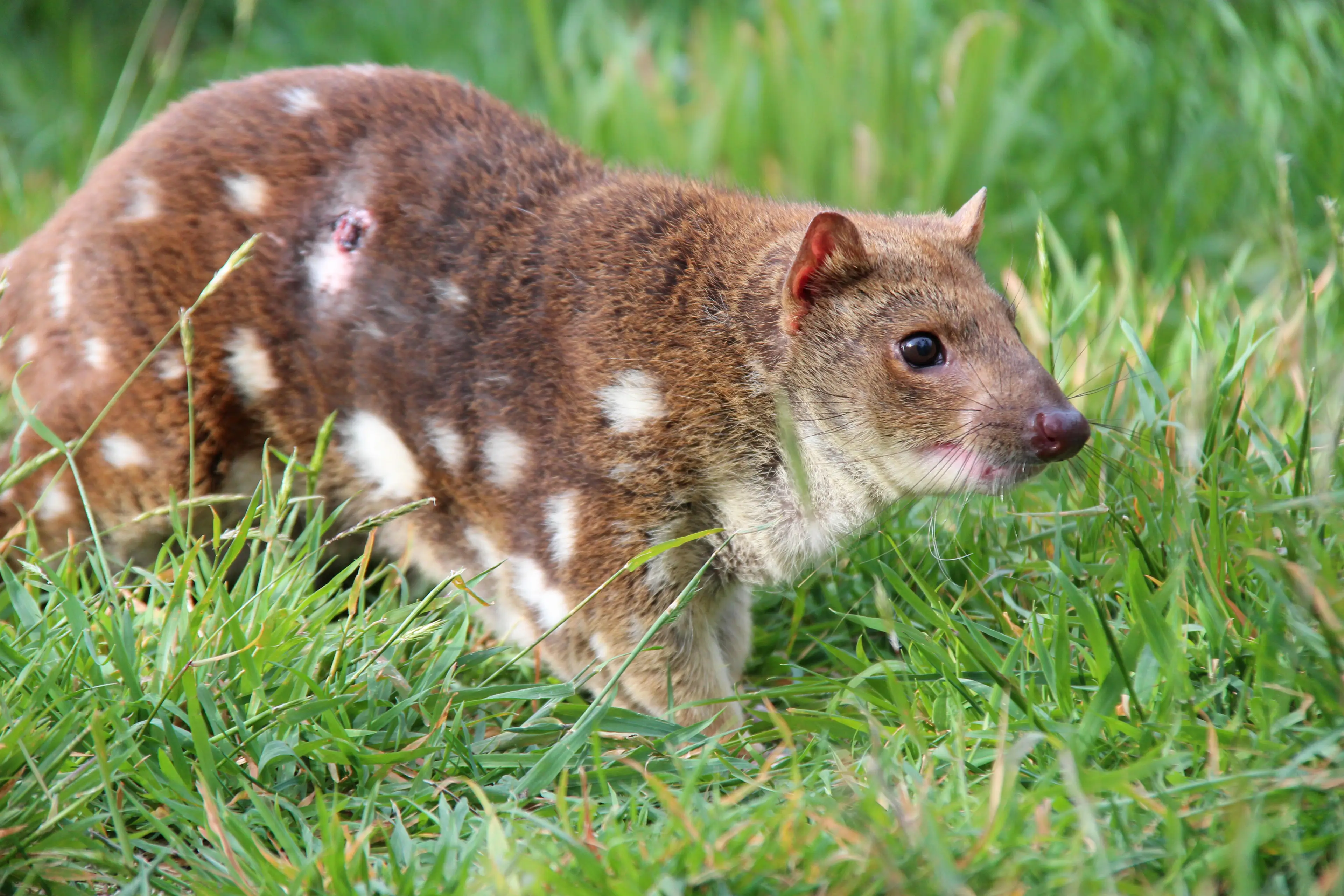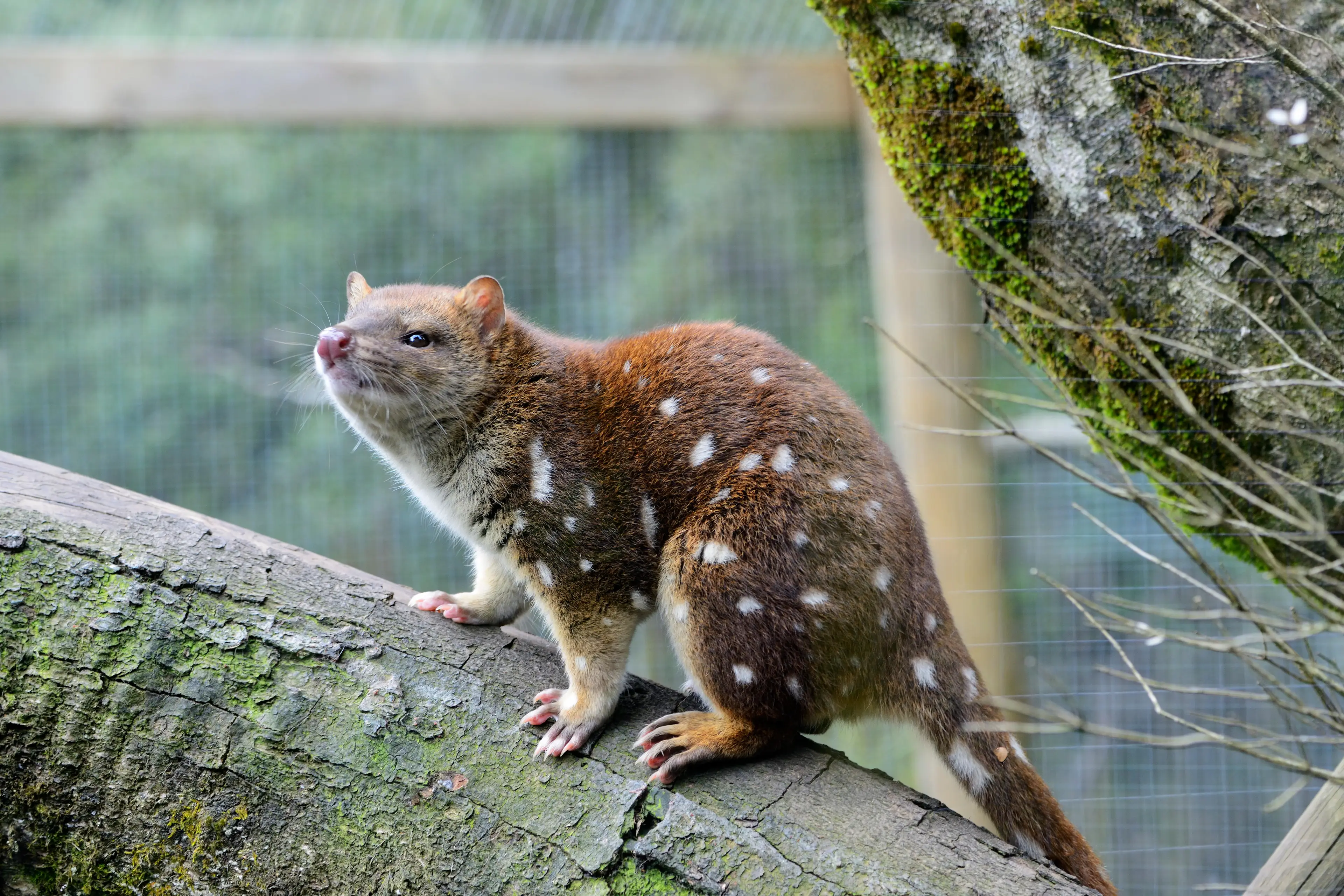
A new study suggests a rare marsupial species faces extinction as they have too much sex and not enough sleep.
Researchers from the University of the Sunshine Coast have discovered endangered male northern quolls are so desperate to mate that it is killing many of them prematurely.
Sex, drugs, rock 'n' quoll, I hate myself.
UniSC Senior Lecturer in Animal Ecophysiology Dr Christofer Clemente said in a press release: “They cover large distances to mate as often as possible and it seems that their drive is so strong that they forgo sleeping to spend more time searching for females.
Advert
“Something is definitely causing their health to fail after just one season and we think it is linked to sleep deprivation.

“The dangers of a lack of sleep are well documented in rodents, and many of the traits associated with sleep deprivation we see in male quolls, and not in females.”
Female quolls tend to live and breed for around four years.
He added that when male quolls are sleep deprived, they begin to lose weight, become aggressive and reckless when it comes to their survival.
These little babies get especially horny during breeding season - go figure - and will spend a lot of their energy primarily on pumping and dumping.
They will legitimately go at it to the point their condition declines, and grooming becomes less of a priority.
To study their behaviour, researchers fitted backpacks with trackers onto quolls roaming around Groote Eylandt, off the coast of the Northern Territory.

Lead author, UniSC PhD candidate Joshua Gaschk said they observed how the genders behaved and noticed the male species tended to move around more.
He said two males named Moimoi and Cayless travelled around 10km - an equivalent human distance of 35-40km - in one night.
Gaschk added that males were less vigilant than females as prolonged sleep deprivation made them vulnerable towards predators.
“Sleep deprivation, and associated symptoms for a prolonged duration would make recuperation impossible and could explain the causes of death recorded in the males after breeding season,” he said.
“They become easy prey, are unable to avoid vehicle collisions, or simply die from exhaustion.”
Gaschk hopes this research will help scientists understand the broader effects of sleep deprivation on marsupials.
He added: “If male northern quolls forgo sleep to the detriment of their survival, Northern quolls become an excellent model species for the effects of sleep deprivation on body function.”